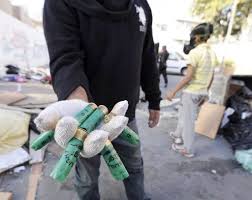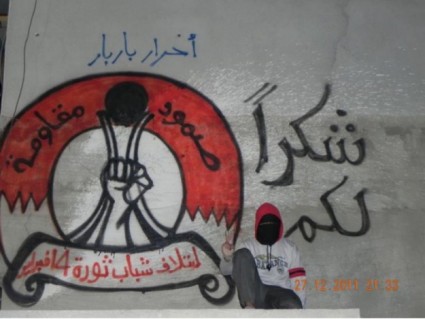Psychiatrists Deeply Concerned For 5% Of Americans Who Approve Of Congress
Psychiatrists Deeply Concerned For 5% Of Americans Who Approve Of Congress
9 October, 2013 – The Onion
WASHINGTON—Noting that the individuals in question may be extremely mentally disturbed or suffering from a serious psychological illness, the nation’s psychiatrists announced Wednesday that they are deeply concerned for the estimated 5 percent of Americans who were found in nationwide polls this week to approve of the U.S. Congress. “With numerous members of Congress refusing to negotiate an end to the shutdown in the face of widespread federal furloughs and a looming deadline to avoid defaulting on government debt, we are extremely concerned for the mental health of those Americans who responded, ‘Yes, we think Congress is doing a good job,’” psychiatrist Dr. Donald Levin said in a press conference this morning.
Dr. Donald Levin, told reporters that the estimated 15.5 million Americans who approve of Congress are likely “very troubled” citizens who may in fact be experiencing psychotic episodes or delusional thoughts. “We’re not entirely sure who these people are or where they come from—perhaps they are psych ward patients, or unstable recluses living in remote huts on the outskirts of society—but what we do know is that they are extremely disconnected from reality and in need of immediate attention if they are not already receiving it. We need to find these people and get them the help they need before their illnesses get worse.”
Psychiatrists added that because a number of mental health services are currently furloughed, many respondents would just have to “sit tight and hang in there” until the shutdown is resolved. …source
October 9, 2013 Add Comments
Saudis stretched to cope with waning US dominance in Middle Eastern Affairs
Insight: Saudis brace for ‘nightmare’ of US-Iran rapprochement
9 October, 2013 – Egypt Independent – Reuters
When Saudi Arabia’s veteran foreign minister, Prince Saud al-Faisal, made no annual address to the United Nations General Assembly last week for the first time ever, his unspoken message could hardly have been louder.
For most countries, refusing to give a scheduled speech would count as little more than a diplomatic slap on the wrist, but for staid Saudi Arabia, which prefers back-room politicking to the public arena, it was uncharacteristically forthright.
Engaged in what they see as a life-and-death struggle for the future of the Middle East with arch-rival Iran, Saudi rulers are furious that the international body has taken no action over Syria, where they and Tehran back opposing sides.
Unlike in years past, they are not only angry with permanent Security Council members China and Russia, however, but with the United States, which they believe has repeatedly let down its Arab friends with policies they see as both weak and naive.
Like Washington’s other main Middle Eastern ally, Israel, the Saudis fear that President Barack Obama has in the process allowed mutual enemies to gain an upper hand.
The alliance between the United States, the biggest economy and most powerful democracy, and Saudi Arabia, the Islamic monarchy that dominates oil supplies, is not about to break.
But, as happened 40 years ago next week when an OPEC oil embargo punished US war support for Israel, Riyadh is willing – albeit without touching energy supplies – to defy Washington in defense of its regional interests. The two have been at odds over Egypt since the Arab Spring, and increasingly so on Syria, where Saudi Arabia could now do more to arm Sunni Muslim rebels.
The real focus of Saudi anger is the Shi’ite Muslim clerics who have preached Islamic revolution since coming to power in Tehran 34 years ago, and whose hands Riyadh sees orchestrating political foes in half a dozen Arab countries.
Already aghast at US reluctance to back rebels fighting Syrian President Bashar al-Assad, Tehran’s strongest Arab friend, Saudi princes were horrified to see Washington reaching out to Hassan Rouhani, the new Iranian president, last month.
“The Saudis’ worst nightmare would be the administration striking a grand bargain with Iran,” said former diplomat Robert Jordan, who was US ambassador to Riyadh from 2001 to 2003.
Although any meaningful US-Iranian rapprochement looks distant, Obama telephoned Rouhani, an emollient self-described moderate, during the United Nations General Assembly.
The Saudis now fear Obama may be tempted to thaw ties with Tehran by striking a deal to allow inspections of its atomic sites in return for allowing Iranian allies to go on dominating Arab countries such as Lebanon, Syria and Iraq. That such a bargain has never been publicly mooted from within the Obama administration has not stopped Saudis voicing their concerns.
“I am afraid in case there is something hidden,” said Abdullah al-Askar, chairman of the foreign affairs committee in Saudi Arabia’s advisory parliament, the Shoura Council. “If America and Iran reach an understanding it may be at the cost of the Arab world and the Gulf states, particularly Saudi Arabia.”
Askar stressed he was not privy to government thinking on the issue and was speaking in a purely personal capacity. …more
October 9, 2013 Add Comments
After Obama’s ‘near miss’ on Syria, Brits step away from incoherent US Foreign Policy
Iran, Britain Agree to Name Non-Resident Diplomats
9 October, 2013 – FARS
TEHRAN (FNA)- Iran and Britain have agreed to appoint non-resident charges d’affaires as a first step towards reopening of embassies, Iranian Foreign Ministry Spokeswoman Marziyeh Afkham said.
“Following negotiations between the two foreign ministers in New York, it has been agreed that talks shall continue between representatives of the two foreign ministries,” Afkham said on Tuesday.
“And following these talks, British Foreign Secretary William Hague, in a telephone conversation with (Iranian Foreign Minister Mohammad Javad) Zarif yesterday (Monday), proposed that the two countries move to appoint non-resident chargés d’affaires in their respective capitals,” she added, press tv reported.
In a meeting at the UN Headquarters in New York City on September 23, Zarif and Hague discussed the improvement of Tehran-London relations, Iran’s nuclear energy program as well as regional developments.
Afkham said in view of the Iranian parliament’s approval of a bill to downgrade Iran-UK ties, Tehran and London agreed to maintain ties at the level of non-resident chargés d’affaires as of Tuesday.
On November 27, 2011, Iranian lawmakers voted by a large majority to downgrade diplomatic ties with the United Kingdom, in response to Britain’s decision to impose sanctions on the Central Bank of Iran over the allegation that Iran is pursuing non-civilian objectives in its nuclear energy program.
Two days after the decision by the Iranian parliament, hundreds of Iranian students staged a protest outside the British Embassy in Tehran and pulled down the UK flag.
On November 30 of the same year, London cut off its ties with Tehran, withdrew its diplomatic staff from Iran and the Iranian Embassy in London was closed. …source
October 9, 2013 Add Comments
The Saudi-Bahrain Sectarian Divide, is an Engineered Apartheid
The Sectarian Gulf vs. the Arab Spring
By Toby Matthiesen – 8 October, 2013 – FP, Foreign Policy
I first visited the Eastern Province in 2008 while on a fieldwork trip. Traveling on a railroad built by the Americans for King Abdulaziz al Saud, the founder of the modern Kingdom of Saudi Arabia, as a favor in return for the right to explore Saudi oil reserves, I left the shiny skyscrapers and crowded streets of the capital Riyadh and arrived in Hofuf in the al-Ahsa oasis, which together with Qatif is the main center of Shiite settlement in Saudi Arabia. In these towns and surrounding villages, some side streets have no pavement, old city centers are decaying, and youth unemployment is high. For decades, Shiites have also complained of sectarian discrimination in religious practices, government employment, and the judicial system, all of which contributes to the feeling that they are being treated like second-class citizens.
When faced with rising political challenges in early 2011, the Gulf states — Bahrain and Saudi Arabia in particular — mobilized sectarianism in order to suppress domestic calls for reform, a strategy that I analyze in my recent book Sectarian Gulf: Bahrain, Saudi Arabia, and the Arab Spring that Wasn’t. I saw first-hand how the invention of a “Shiite threat” narrative unfolded, standing on the now demolished Pearl Roundabout in the Bahraini capital Manama in mid-February 2011. Initially, tens of thousands, mainly Shiite (but also some Sunni), protesters poured into the streets to demand political reform. After the first protesters were shot, a part of the protest movement became radicalized, and started calling for the removal of the ruling family. Bahrain has a Shiite majority population (between 60 and 70 percent) and the ruling family is Sunni, so the ruling family used official and semi-official media to try to portray this as a “sectarian” uprising of one sect against the other.
Just as President Bashar al-Assad is doing in Syria, this strategy of sectarian polarization was aimed at delegitimizing the opposition, and scaring the minority Sunnis of a possible alternative political system and into total allegiance with the ruling family. A month after the protests started, on March 14, 2011, Saudi troops rolled over the causeway that links the Saudi Eastern Province with Bahrain. The king of Bahrain imposed a state of emergency, and a campaign of arrests, torture, mass dismissals and extrajudicial killings started, mainly directed against members of the Shiite sect.
At the same time, the Saudi media empire, which controls much of the pan-Arab media, started taking up the Bahraini narrative and accused all the Shiites in the Gulf states of planning an uprising at the behest of Iran. This narrative was as much directed against the Bahraini Shiites, as against the Saudi Shiites, of whom there are between two and three million mainly concentrated in the oil-rich Eastern Province. Galvanized by the Bahrain uprising, they started a protest movement of their own, and were the only Saudis to go out into the streets when social media sites called for a Saudi chapter of the region-wide Arab Spring in March 2011. Other Saudis have since taken to the streets to demand the release of political prisoners but by and large the protest movement in the Eastern Province failed to spill over to the rest of the country.
Rather than addressing the real grievances of their Shiite citizens or instituting some political reform, as the Bahraini protesters were demanding, the Gulf states reacted with an “iron fist,” as the Saudi Ministry of Interior put it. They spearheaded the regional counter-revolution and spread a vicious sectarian hate speech that would shape the discourse and actions of the rebels in Syria, while preventing Shiites and Sunnis at home from uniting in calls for reform. The Gulf countries’ demonization of the Shiites has led to a virtual “sectarian Gulf.” Local Shiites (and foreign Shiites such as Lebanese or South-East Asians) are collectively marginalized and brandished as a fifth column. This has led to a breakdown of the cross-sectarian social fabric in the Gulf and beyond, with many Sunni Islamists from the Gulf funding the rebels in Syria, while the loyalties of many Gulf Shiites lie with the Assad regime and Hezbollah. Syria has then become a locus for yet another proxy-conflict, one that sets a dangerous precedent for Sunni-Shiite relations in the Gulf and beyond.
If the Gulf states are really concerned about the loyalty of their Shiite subjects, they should accept them as full and equal citizens. The current policy of stigmatization and collective punishment is alienating many Gulf Shiites and is driving small groups of opposition activists back into the Iranian nexus, a connection that had existed after the Iranian Revolution of 1979 but had been largely capped since most Gulf Shiite oppositionists returned from exile throughout the 1990s. While Iran does not have the kind of influence over Gulf Shiite political movements it had in the 1980s, and the Shiites in the Gulf do not protest because of affinity with Iran, there are signs that Iran and Lebanon’s Hezbollah are again trying to reach out to Bahraini and Saudi Shiite opposition activists. A realignment of some Gulf Shiite opposition groups with Iran or Shiite militias across the region would come as a response to the Gulf states’ sectarian counter-revolution and their vicious crackdown on any form of dissent. This would be a self-fulfilling prophecy that should be avoided.
The Gulf states’ sectarian strategy also puts a new light on the Gulf’s shifting relationship with political Islam and its support for the crackdown on the Muslim Brotherhood in Egypt. While popular wisdom usually sees the Gulf states as promoters of political Islam, they have a very ambiguous relationship with Islamist movements across the Middle East, and apart from Qatar, no Gulf state is backing the main Arab Sunni Islamist group, the Muslim Brotherhood, unconditionally. Some Gulf states were the main supporters of the recent military coup against the Muslim Brotherhood-dominated government: Saudi Arabia, the United Arab Emirates, and Kuwait immediately pledged $12 billion of aid to the new government. This was, in part, because the Brotherhood and its Qatari backers did not fit comfortably into the anti-democratic and sectarian agenda that these regimes view as essential to their own survival. The rise of an alternative Sunni Islamic model of politics was to be avoided at all costs and the hate speech directed against supporters of the Muslim Brotherhood both in Egypt and in the Gulf, denouncing them as the enemy within, is similar to the hate speech directed against the Shiites.
But if the Gulf states are serious about long-term stability in the region, they should enable the inclusion of pro-democracy Islamic movements in the political process both at home and in the wider region. The West should not again pick sides in these intra-Islamic feuds (the intervention in Iraq in 2003 was one of the key events that paved the way for the current sectarian polarization). Rather than backing Sunni Islamist rebels in Syria and buying into the “Shiite threat” narrative emanating from Gulf capitals, the West should urge its allies in the Gulf to tame down sectarian rhetoric and negotiate a new social contract. Barring that, the sectarian civil war that is now effectively stretching from Beirut to Basra may come back to haunt the Gulf states and their Western supporters.
October 9, 2013 Add Comments
Bahrain State Terror leaves PM bin Salman’ call to reject violence a fools utterace

Bahrain Protestor Bird-shot by Riot Police during Recent Village Raids, Round-up and Detention
HRH Premier: Whoever abstains from rejecting violence is not eligible to talk about reform
9 October, 2013 – BNA
Manama, Oct. 9. (BNA) – His Royal Highness Prime Minister Prince Khalifa bin Salman Al Khalifa has urged all government departments to take the necessary measures to implement the recommendations issued by the National Assembly and apply the law strictly and firmly.
He stressed that in line with the Royal desire and the will of the people of Bahrain, state departments have no other option but to implement the recommendations “directly and immediately” so that every citizens feels secure in his daily life.
This came as HRH Premier chaired here today a security and civil meeting in which he reviewed the security situation in the kingdom, especially regarding combating terrorism.
He emphasised that violence, terrorism and involvement in providing cover for groups of saboteurs who aim to undermine the kingdom’s security, stability and hard-won achievements cannot, as proved throughout history, create a reform-friendly environment.
Embracing violence, adopting political sectarianism and resorting to foreign sides can only lead to an environment that is hostile to reform and real progress, he explained.
HRH Premier stressed that whoever abstains from renouncing violence and repudiating perpetrators openly and firmly is not eligible enough to talk about reform, democracy and serious desire to bring about real development.
He pointed out that whoever rejects national consensus and engages in some practices to exert pressure in order to earn narrow gains lacks seriousness, will to enhance all-inclusive national work and credibility.
HRH Prime Minister affirmed that the government has the right to ensure that all sides, including political associations, adhere to the laws regulating political work in the kingdom.
He stressed that practising political work transparently and according to legal norms is a basic requirement in order to ensure its legitimacy and protect its principles. ..source
October 9, 2013 Add Comments
Lebanese Politicians Loud Support for Popular Uprising in Bahrain
October 9, 2013 Add Comments
Bahrain Crackdown Rivals that of days of Martial Law
Bahrain steps up crackdown on dissent, Al-Wefaq says
9 October, 2013 – PressTV
Bahrain’s main opposition party says the Al Khalifa regime’s harsh crackdown on pro-democracy activists has intensified over the past month, with the highest levels of violence since the uprising began in 2011.
The al-Wefaq National Islamic Society has documented 1,900 cases of human rights violations in a report only in the month of September, including incidents in which regime forces used excessive force or torture.
According to the report, last month, 214 anti-regime protesters were arrested, including two women and 40 children, the highest number since the revolution began.
The al-Wefaq report also said that 111 activists, who were convicted by a Bahraini court and given sentences of up to 15 years, were tried based on fabricated charges.
On Monday, Bahrainis took to the streets in the northeastern island of Sitra for the sixth consecutive day to denounce the regime’s unrelenting crackdown on pro-democracy protests.
People from all walks of life attended marches in Sitra to demand reforms and an end to the decades-old rule of the Al Khalifa dynasty.
Earlier in the day, a court in Bahrain sentenced nine anti-regime activists to life in prison after convicting them of being allegedly involved in an attack in November 2011 in the capital Manama.
Four of the defendants, who were present at the court, had previously said that they were subjected to torture and mistreatment in solitary confinement.
Five other defendants, tried in absentia, were handed additional 10-year jail terms for failing to hand themselves in.
The verdict brought to 104 the number of pro-democracy protesters sentenced to lengthy jail terms in Bahrain.
Similar rallies were also held in the villages of Nuwaidrat and Samahich close to Sitra, where protesters expressed solidarity with the detainees and condemned the unjust sentences.
Since mid-February 2011, thousands of pro-democracy protesters have staged numerous demonstrations in the streets of Bahrain, calling for the Al Khalifa royal family to relinquish power.
According to local sources, scores of people have been killed and hundreds arrested.
Physicians for Human Rights says doctors and nurses have been detained, tortured, or disappeared because they have “evidence of atrocities committed by the authorities, security forces, and riot police” in the crackdown on anti-government protesters. …source
October 9, 2013 Add Comments
Ousting Bahraini Prime Minister as a step toward Democracy is a Fiction
Opposition Group: Ousting Bahraini PM First Step towards Democracy
9 October, 2013 – FARS
TEHRAN (FNA)- A senior member of Bahrain’s al-Wefaq National Islamic Society said if the Bahraini king sacks his uncle Prime Minister Prince Khalifa bin Salman Al Khalif, he would help settle the crisis in the country in peaceful ways.
“Demands for the resignation of Prime Minister Prince Khalifa bin Salman Al Khalifa from his post are the first step for the settlement of the crisis which has entangled Bahrain,” Majid Milad told FNA on Wednesday.
His remarks came after the Lebanese al-Safir newspaper reported Washington’s demand from Bahraini King Hamad to oust his uncle from the post which is occupied by him for four decades.
Milad said if the demand is materialized, the Bahraini dissidents will stop their demonstrations and will wait for continued trend of reforms.
Bahrainis have earlier staged anti-regime demonstration in the capital, Manama to call for the kingdom’s long-time prime minister to resign.
Late in September, the demonstrators said Salman Al Khalifa’s resignation will pave the way for the establishment of a democratically-elected government.
Salman, who is an uncle of King Hamad, has been in his post since 1971.
They also called for an end to the dictatorship of the ruling Al Khalifa regime and sectarian measures taken against the country’s Shiite majority.
Anti-government protesters have been holding peaceful demonstrations across Bahrain since mid-February 2011, calling for an end to the al-Khalifa dynasty.
Violence against the defenseless people escalated after a Saudi-led conglomerate of police, security and military forces from the Persian Gulf Cooperation Council (PGCC) member states – Saudi Arabia, Kuwait, the United Arab Emirates, Oman and Qatar – were dispatched to the tiny Persian Gulf kingdom on March 2011, to help Manama crack down on peaceful protestors.
So far, tens of protesters have been killed, hundreds have gone missing and thousands of others have been injured.
…source
October 9, 2013 Add Comments
Dozens of Birdshot Blindings Haunt Bahrain Regime on “World Sight Day”
Bahrain marks World Sight Day
10 September, 2013 – BNA
Manama: Oct. 9 – (BNA)– The Kingdom of Bahrain, represented by the Saudi-Bahraini Institute for the Blind, celebrates the World Sight Day (WSD) which falls on 10th October. The Kingdom of Bahrain also celebrates the White Cane Day which falls on 15th October.
The Director of the Saudi-Bahraini Institute for the Blind, Mr. Abdulwahid Mohammed Al-Khayyat, said the celebration of both occasions this year comes under the slogan: (Healthy Eyesight for Everybody) which reflects the diligence of the beloved Kingdom and its wise leadership vis-à-vis members of the community who have special needs and the blind. He pointed out that the Institute celebrates the White Cane Day which is the symbol and motto of the Blind in their mobility and kinesis in order to increase awareness about this dear category of community members and to define their difficulties and services provided to them from centres and institutions of poor visibility. He said that the day to celebrate the White Cane Day has been decided by the International Federation for the Blind. The White Cane is a symbol and announces that its carrier is a blind person.
On this occasion, Mr. Al-Khayyat expressed his gratitude and appreciation to all public and private institutions, banks, national companies, dignitaries, for their unlimited support to the activities of the Institute. He also thanked all Ministry of Education officials, led by H.E. Dr. Majid bin Ali Al-Nuaimi and ministry undersecretaries, assistant undersecretaries, departmental directors and school principals for their contribution which ensured the success of merging blind students in mainstream education.
Mr. AlKhayyat also expressed gratitude and appreciation to Minister of Health Mr. Sadiq Al-Shehabi, Minister of Housing engineer Bassim Al-Hammer for their support to the Institute, its employees and students. …source
October 9, 2013 Add Comments
Sitra’s Unyeilding Protests Remain Steadfast Against Bloody Bahrain Regime
Bahrainis hold demos against Al Khalifa regime
8 October, 2013 – PressTV
Bahrainis have taken to the streets in the northeastern island of Sitra for the sixth consecutive day to denounce the Al Khalifa regime’s unrelenting crackdown on pro-democracy protests.
On Monday, people from all walks of life attended marches in Sitra to demand reforms and an end to the decades-old rule of the Al Khalifa dynasty.
Earlier in the day, a court in Bahrain sentenced nine anti-regime activists to life in prison after convicting them of being allegedly involved in an attack in November 2011 in the capital city of Manama.
Four of the defendants, who were present at the court, had previously said that they were subjected to torture and mistreatment in solitary confinement.
Five other defendants, tried in absentia, were handed additional 10-year jail terms for failing to hand themselves in. Life imprisonment term in Bahrain is 25 years.
The verdict brought to 104 the number of pro-democracy protesters sentenced to lengthy jail terms in Bahrain.
Similar rallies were also held in the villages of Nuwaidrat and Samahich close to Sitra, where protesters expressed solidarity with the detainees and condemned the unjust sentences.
The Bahraini uprising began in mid-February 2011. Protesters initially called for political reforms and a constitutional monarchy, a demand that later changed to an outright call for the ouster of the ruling Al Khalifa family following its brutal crackdown on popular protests.
Scores have been killed, many of them under torture while in custody, and thousands more detained since the popular uprising began in the Persian Gulf kingdom.
…source
October 8, 2013 Add Comments
The West and Its Fascist Dictator Allies, Full Sectarian Tension in the Middle East
October 8, 2013 Add Comments
Five Enemies of Diplomacy Hell-Bent On Sabotaging Peace Between America and Iran
Five Enemies of Diplomacy Hell-Bent On Sabotaging Peace Between America and Iran
By Anna Ruiz – Alternet – 25 September, 2013
Will the new Iranian president’s diplomatic opening survive the onslaught from detractors like Israel, Saudi Arabia and members of the U.S. Congress?
The new Iranian leader’s diplomatic moves have brought hope to those searching for an end to hostility between Iran and the U.S. In the days leading up to the annual gathering of world leaders in New York, Iranian president Hassan Rouhani proclaimed to NBC News that Iran would not seek nuclear weapons under any circumstances and penned a Washington Post op-ed in which he declared, “I’m committed to fulfilling my promises to my people, including my pledge to engage in constructive interaction with the world.”
It was all part of Rouhani’s effort to pave the way for a potential new chapter in U.S.-Iranian relations. After decades of mistrust sowed by a U.S.-backed coup in 1953 and the taking of American hostages in the aftermath of the 1979 Islamic Revolution, Rouhani seemed to be trying to forge a different course. The new Iranian president’s United Nations speech continued the diplomatic opening, declaring that Iran was open to negotiations aimed at resolving “reasonable concerns” about Iran’s nuclear energy program. Rouhani’s UN talk came hours after President Barack Obama signaled an American willingness to engage in talks with Iran, though it’s far from a sure thing that meetings could bear fruit.
The details of a potential deal are fairly well-known. It would involve Western recognition of Iran’s right to enrich uranium for peaceful purposes in return for an Iranian willingness to allow more inspections of its nuclear program, ending work on a water reactor that could produce a key element of a nuclear weapon and capping the levels of uranium enrichment. Iranian concessions would be met with sanctions relief.
But will the diplomatic opening survive the onslaught of a wide array of detractors? That’s the big question.
On September 24, the day of Rouhani’s and Obama’s speeches, a large crowd of detractors virulently opposed to a thaw in U.S.-Iranian relations demonstrated outside the United Nations. Organized by the political branch of the Iranian expatriate group Mojahedin-e-Khalq (MEK), thousands of Iranian-Americans gathered to denounce Rouhani and any chance of diplomacy. Also at the rally were non-Iranian Americans that were bused in from around the country, their tickets, food and lodging all paid for by MEK. “Some of the people don’t have a clue what it was all about,” one man from Michigan at the rally told AlterNet.
Waving trademark red, green and white MEK flags and chanting for the downfall of the Iranian regime, MEK supporters listened to former U.S. officials on the group’s payroll fall over themselves for the most hyperbolic statements about Iran’s new leader.
Former Democratic senator Robert Toricelli thundered, “there is no compromising with evil….Do not meet with terrorists.” Former chair of the Republican National Committee Michael Steele said, “do not shake hands with Rouhani,” a reference to the possibility that Obama would do just that with Rouhani (the handshake or meeting never materialized). The hawkish former U.S. ambassador to the United Nations, John Bolton, told the crowd it would be “repugnant” for Obama to meet with Rouhani and that now was the time for “increasing” punishing sanctions on Iran which have wreaked havoc on their economy and led to medicine shortages. But it fell to former New York City Mayor Rudy Giuliani to take the cake for the most ridiculous statement of the day when he tried to link Rouhani to a 1994 bombing of a Jewish center in Argentina.
“Rouhani…was certainly aware of it, certainly involved. Their blood is on their hands, and just wishing people ‘Happy Rosh Hashanah’ doesn’t wipe away the blood of these Jewish martyrs from Iran’s hand or Rouhani,” said Giuliani. But while the Iranian government has been linked to the attack, the Argentine prosecutor on the case told the Times of Israel in June that Rouhani “did not participate” in the meeting that approved the bombing.
MEK and its supporters are hardly the only political force that wants to stop U.S.-Iranian negotiations over the nuclear program. Here are five others.
October 8, 2013 Add Comments
The Empire Shrinks Back – One can only Hope
Sense Of Unease Growing Around The World As U.S. Government Looks Befuddled
By STEVEN R. HURST – 5 October, 2013 – Huffington Post
An unmistakable sense of unease has been growing in capitals around the world as the U.S. government from afar looks increasingly befuddled — shirking from a military confrontation in Syria, stymied at home by a gridlocked Congress and in danger of defaulting on sovereign debt, which could plunge the world’s financial system into chaos.
While each of the factors may be unrelated to the direct exercise of U.S. foreign policy, taken together they give some allies the sense that Washington is not as firm as it used to be in its resolve and its financial capacity, providing an opening for China or Russia to fill the void, an Asian foreign minister told a group of journalists in New York this week.
Concerns will only deepen now that President Barack Obama canceled travel this weekend to the Asia Pacific Economic Cooperation Forum in Bali and the East Asia Summit in Brunei. He pulled out of the gatherings to stay home to deal with the government shutdown and looming fears that Congress will block an increase in U.S. borrowing power, a move that could lead to a U.S. default.
The U.S. is still a pillar of defense for places in Asia like Taiwan and South Korea, providing a vital security umbrella against China. It also still has strong allies in the Middle East, including Israel and the Gulf Arab states arrayed against al-Qaida and Iran.
But in interviews with academics, government leaders and diplomats, faith that the U.S. will always be there is fraying more than a little.
“The paralysis of the American government, where a rump in Congress is holding the whole place to ransom, doesn’t really jibe with the notion of the United States as a global leader,” said Michael McKinley, an expert on global relations at the Australian National University.
The political turbulence in Washington and potential economic bombshells still to come over the U.S. government shutdown and a possible debt default this month have sent shivers through Europe. The head of the European Central Bank, Mario Draghi, worried about the continent’s rebound from the 2008 economic downturn.
“We view this recovery as weak, as fragile, as uneven,” Draghi said at a news conference.
Germany’s influential newspaper Sueddeutsche Zeitung bemoaned the U.S. political chaos.
“At the moment, Washington is fighting over the budget and nobody knows if the country will still be solvent in three weeks. What is clear, though, is that America is already politically bankrupt,” it said.
Obama finds himself at the nexus of a government in chaos at home and a wave of foreign policy challenges.
He has been battered by the upheaval in the Middle East from the Arab Spring revolts after managing to extricate the U.S. from its long, brutal and largely failed attempt to establish democracy in Iraq. He is also drawing down U.S. forces from a more than decade-long war in Afghanistan with no real victory in sight. He leads a country whose people have no interest in taking any more military action abroad.
As Europe worries about economics, Asian allies watch in some confusion about what the U.S. is up to with its promise to rebalance military forces and diplomacy in the face of an increasingly robust China.
Global concerns about U.S. policy came to a head with Obama’s handling of the civil war in Syria and the alleged use of chemical weapons by the regime of President Bashar Assad. But, in fact, the worries go far deeper.
[Read more →]
October 8, 2013 Add Comments
Saudi activist Waleed Abu al-Khair, held after hosting forums
Saudi activist Waleed Abu al-Khair, held after hosting forums
The Associated Press – 7 October, 2013 – Las Vegas Sun
A rights group says a prominent Saudi Arabian activist has been detained after leading meetings to discuss political affairs and other issues in the kingdom.
It was unclear whether Waleed Abu al-Khair will face new charges or was placed in detention related to his ongoing trial on charges that include opposing Saudi Arabia’s monarchy and ruling institutions.
The London-based Institute for Human Rights in Saudi Arabia says al-Khair was taken into custody Wednesday in Jiddah, where he was holding discussion forums on Saudi affairs. Al-Khair is a lawyer and founder of a human rights group.
Saudi authorities had no immediate comment.
Saudi Arabia and other Gulf Arab allies have expanded crackdowns on activists and perceived political dissent since the beginning of the Arab Spring uprisings in 2011. …source
October 8, 2013 Add Comments
The Diary of Bobby Sands
IRA Activist Bobby Sands and other started a hunger strike from March 1st to May 5th, 1981 when he died. Among the demands we that the IRA prisoners be recognized as ‘Political Prisoners’.
The Diary of Bobby Sands
PBS – Front Line
Sunday 1st I am standing on the threshold of another trembling world. May God have mercy on my soul.
My heart is very sore because I know that I have broken my poor mother’s heart, and my home is struck with unbearable anxiety. But I have considered all the arguments and tried every means to avoid what has become the unavoidable: it has been forced upon me and my comrades by four-and-a-half years of stark inhumanity.
I am a political prisoner. I am a political prisoner because I am a casualty of a perennial war that is being fought between the oppressed Irish people and an alien, oppressive, unwanted regime that refuses to withdraw from our land.
I believe and stand by the God-given right of the Irish nation to sovereign independence, and the right of any Irishman or woman to assert this right in armed revolution. That is why I am incarcerated, naked and tortured.
Foremost in my tortured mind is the thought that there can never be peace in Ireland until the foreign, oppressive British presence is removed, leaving all the Irish people as a unit to control their own affairs and determine their own destinies as a sovereign people, free in mind and body, separate and distinct physically, culturally and economically.
I believe I am but another of those wretched Irishmen born of a risen generation with a deeply rooted and unquenchable desire for freedom. I am dying not just to attempt to end the barbarity of H-Block, or to gain the rightful recognition of a political prisoner, but primarily because what is lost in here is lost for the Republic and those wretched oppressed whom I am deeply proud to know as the ‘risen people’.
There is no sensation today, no novelty that October 27th brought. (The starting date of the original seven man hunger-strike) The usual Screws were not working. The slobbers and would-be despots no doubt will be back again tomorrow, bright and early.
I wrote some more notes to the girls in Armagh today. There is so much I would like to say about them, about their courage, determination and unquenchable spirit of resistance. They are to be what Countess Markievicz, Anne Devlin, Mary Ann McCracken, Marie MacSwiney, Betsy Gray, and those other Irish heroines are to us all. And, of course, I think of Ann Parker, Laura Crawford, Rosemary Bleakeley, and I’m ashamed to say I cannot remember all their sacred names.
Mass was solemn, the lads as ever brilliant. I ate the statutory weekly bit of fruit last night. As fate had it, it was an orange, and the final irony, it was bitter. The food is being left at the door. My portions, as expected, are quite larger than usual, or those which my cell-mate Malachy is getting.
Monday 2nd Much to the distaste of the Screws we ended the no-wash protest this morning. We moved to ‘B’ wing, which was allegedly clean.
We have shown considerable tolerance today. Men are being searched coming back from the toilet. At one point men were waiting three hours to get out to the toilet, and only four or five got washed, which typifies the eagerness (sic) of the Screws to have us off the no-wash. There is a lot of petty vindictiveness from them.
I saw the doctor and I’m 64 kgs. I’ve no problems.
The priest, Fr John Murphy, was in tonight. We had a short talk. I heard that my mother spoke at a parade in Belfast yesterday and that Marcella cried. It gave me heart. I’m not worried about the numbers of the crowds. I was very annoyed last night when I heard Bishop Daly’s statement (issued on Sunday, condemning the hunger-strike). Again he is applying his double set of moral standards. He seems to forget that the people who murdered those innocent Irishmen on Derry’s Bloody Sunday are still as ever among us; and he knows perhaps better than anyone what has and is taking place in H-Block.
He understands why men are being tortured here — the reason for criminalisation. What makes it so disgusting, I believe, is that he agrees with that underlying reason. Only once has he spoken out, of the beatings and inhumanity that are commonplace in H-Block.
I once read an editorial, in late ’78, following the then Archbishop O Fiaich’s ‘sewer pipes of Calcutta’ statement. It said it was to the everlasting shame of the Irish people that the archbishop had to, and I paraphrase, stir the moral conscience of the people on the H-Block issue. A lot of time has passed since then, a lot of torture, in fact the following year was the worst we experienced.
Now I wonder who will stir the Cardinal’s moral conscience…
Bear witness to both right and wrong, stand up and speak out. But don’t we know that what has to be said is ‘political’, and it’s not that these people don’t want to become involved in politics, it’s simply that their politics are different, that is, British.
My dear friend Tomboy’s father died today. I was terribly annoyed, and it has upset me.
I received several notes from my family and friends. I have only read the one from my mother — it was what I needed. She has regained her fighting spirit — I am happy now.
My old friend Seanna (Walsh, a fellow blanket man) has also written.
I have an idea for a poem, perhaps tomorrow I will try to put it together.
Every time I feel down I think of Armagh, and James Connolly. They can never take those thoughts away from me. …more
October 7, 2013 Add Comments
Bilad Qadeem Protests Remain Steadfast Against Bloody Bahrain Regime
Bahraini protests hold anti-regime demo in Bilad Qadeem
6 October, 2013 – ABNA
(Ahlul Bayt News Agency) – Demonstrators chanted slogans against the ruling Al Khalifa family during a protest in the town of Bilad al-Qadeem. They said King Hamad bin Isa Al Khalifa must relinquish power.
The Bahraini uprising against Al Khalifa began in early 2011. Scores of people have been killed and hundreds arrested in the regime crackdown ever since.
In addition, the human rights record of the Bahraini regime has come under scrutiny over its handling of the protests.
Recently, a group of 50 Shia activists were sentenced to up to 15 years in prison after being convicted of forming an opposition group.
Amnesty International has condemned the imprisonment of the activists in Bahrain, describing the move as “appalling.”
“It’s appalling what passes for ‘justice’ today in Bahrain,” said Philip Luther, Amnesty’s director for the Middle East and North Africa.
“The authorities simply slap the label ‘terrorist’ on defendants, and then subject them to all manner of violations to end up with a ‘confession’,” he stated. …source
October 7, 2013 Add Comments
14 February Coalition
October 7, 2013 Add Comments
Bahrain Courts of Injustice sentences nine, to life, on fictitious bomb-making charges
Bahrain sentences 9 to life on bomb charges
The Associated Press – 7 October, 2013
MANAMA, Bahrain — Bahrain says nine people have been sentenced to life in prison after trial on charges of bomb-making in the restive Gulf nation.
Monday’s verdicts mark the latest in a series of recent court decisions that have raised tensions in the strategic kingdom, home to the U.S. Navy’s 5th Fleet.
Sunni-ruled Bahrain has been locked in unrest since early 2011, when majority Shiites started an uprising for greater political rights.
The official Bahrain News Agency says life sentences and fines were handed down to four suspects in custody and five in absentia. The charges also include attempts to target police with attacks.
Violence has risen in Bahrain with recent bombings. Last week, Bahrain set an Oct. 24 trial date for a prominent Shiite political figure, Khalil al-Marzooq, on “terrorism” charges.
October 7, 2013 Add Comments
US State Department spokeswoman Marie Harf, learns who Khalil al-Marzooq, actual is…
Here is the embarrassing excerpt where US State Department spokeswoman Marie Harf, replies to journalist in a “clueless as hell responses about the illegal arrest and detention of former Bahrain MP Khalil al-Marzooq. Now made a “terrorist” by the Bahrain Regime and who will likely be deported. What follows is the lesson that MS Harf learned from her idiocy and disrespect. – Phlipn Out.
MS. HARF: Yep, a couple of points on that. Obviously, we’re following the case closely. We’ll be raising it with the Bahraini authorities as part of our discussion of recent political developments in Bahrain. I think the bigger context is important here, that we are disappointed that opposition groups have suspended their involvement in the national dialogue that you just mentioned. We believe that the national dialogue is an important step in a longer process that leads to meaningful reforms and that addresses the legitimate aspirations of all Bahrainis. So we’ll continue to encourage everyone to participate in it. …Full Interview
U.S. discussing rights issues with Bahrain
4 October, 2013 – UPI.com
WASHINGTON, Oct. 4 (UPI) — The U.S. government has expressed its concern about the treatment of opposition leaders in Bahrain to its close partners in Manama, the State Department said.
Bahrain’s government last month confirmed the arrest of Khalil al-Marzooq, a deputy leader from the opposition al-Wefaq organization. He was accused of inciting violence and supporting terrorism through a speech he delivered to supporters in September.
The Bahraini government stripped dozens of political activists of their citizenship, including at least one member of al-Wefaq. Bahrain blames the opposition group for unrest in the Persian Gulf country.
Dozens of people were killed during an uprising in 2011. Bahrain said it is committed to reforms outlined by an independent commission probing the government’s response to the protests.
U.S. State Department spokeswoman Marie Harf said Washington was calling on both sides to settle their issues through a national dialogue. She said she was concerned about restrictions placed on political freedoms.
“We’ve continued this discussion with the Bahraini government,” she said during her regular press briefing Thursday. “They’re close partners of ours in the region, and we’ll keep talking about it with them.”
Bahrain hosts the U.S. Navy’s Fifth Fleet.
October 5, 2013 Add Comments
Bahrain Repression Continues Amid Sham Trials and Imprisonment
OP-ED: Bahrain Repression Continues Amid Sham Trials and Imprisonment
By Emile Nakhleh – IPS – 4 October, 2013
WASHINGTON, Oct 4 2013 (IPS) – The lengthy prison sentences handed down to 50 Shia activists last week and the refusal of Bahraini courts to hear their allegations of torture once again confirm the regime’s continued repression of the opposition.
Amnesty International in a statement this week decried the unfair trials and sentencing of these activists and the inability of the defence lawyers to present witnesses or to challenge the authorities’ politically motivated charges. Court decisions seem to be pre-ordained regardless of the facts.
“The King’s hands-off approach shows he is ruling over a fractious country that is heading toward the abyss.”
Many of those convicted were allegedly tortured in prison before trial as “terrorists”, an accusation which the Al Khalifa regime hurls at any Bahraini who criticises regime brutality.
In a recent interview with Al Monitor, the Bahraini foreign minister defended his government’s “serious” commitment to the so-called national reconciliation dialogue and accused the opposition of undermining it. He said the dialogue is “there to stay,” but just this week the government suspended the dialogue until Oct. 30.
From the very beginning, the government-organised dialogue has been a public relations stunt to buy time and perhaps mollify critical Western governments. It failed because it mostly focused on process, not substance.
Unfortunately for Bahrainis, the deafening silence in Washington and London about human rights abuses has signaled to the Bahraini regime that other regional trouble spots, especially Syria, Iran, and Egypt, at least for the moment trump Bahrain.
The regime continues to encourage the radical Sunni Salafi elements within the ruling family to pursue an unwavering apartheid policy against the majority and remains impervious to international criticism.
Apart from the convictions, the government crackdown has included banning non-governmental organisations from contacting foreign funding sources or diplomats without government approval, arresting Khalil Marzuq, a leading member of al-Wifaq party, depriving a number of Bahrainis of citizenship, and pursuing an anti-Shia sectarian agenda. These actions have incurred international condemnation and have prompted the opposition in mid-September to pull out of the dialogue.
Restrictions on NGOs finally prompted the U.S. State Department to issue a statement Sep. 19 expressing “concern” about the Bahraini government’s recent restrictions on civil society groups and their ability to freely communicate “with foreign governments and international organizations.”
European governments, spearheaded by Switzerland, privately and publicly have repeatedly condemned human rights abuses in Bahrain. The recent human rights declaration signed by 47 states is another sign of growing international impatience with the autocratic, intolerant, and exclusive nature of the Bahraini regime.
In recent media interviews, the Bahraini foreign minister criticised U.S. President Barack Obama for lumping Bahrain with Iraq and Syria as regimes that have promoted sectarianism.
“We are different from the other two states, and this is hard to take,” the foreign minister said in an interview with the Saudi-owned Al-Hayat newspaper.
Some media reports have discussed the serious divisions within the ruling family’s two major ideological factions. These include the supposedly pro-reform faction led by the King’s son and Crown Prince Salman; the other is the more conservative and anti-reform faction led by the “Khawalids” within the military senior hierarchy and the Royal Court.
The King views himself as a “constitutional monarch” above the political fray and as an arbiter of family ideological feuds. This hands-off approach, however, shows he is ruling over a fractious country that is heading toward the abyss.
By replacing his ambassador in Washington, the relatively moderate Bahraini Jewish woman Huda Nunu, with a military officer closely associated with the Khawalids, the King’s “in your face” appointment in effect is telling Washington that his hard-line policies against the opposition would continue.
Whatever game the King is playing is destined to fail in the long run. He cannot possibly envision a stable and peaceful Bahrain if he continues to allow an extremist Sunni anti-Shia faction within his family to run the country with total disregard of the majority. This is a recipe for violence and chaos. The game is up; the King cannot pretend all is well in his tiny “constitutional monarchy”.
Much like the white extremist faction within the U.S. Republican Party that is bent on disregarding the law of the land and the democratic procedures to effect political change, the extremist Khawalid faction under the auspices of the prime minister is committed to keeping Al Khalifa in power at all costs, even at the risk of tearing the country apart.
If the King is still committed to genuine reform, he should shed his “constitutional monarch” posture and act decisively and courageously. He could immediately take the following 10 steps:
– Remove the prime minister, appoint the crown prince or another distinguished bahraini as acting prime minister, and call for free national elections.
– Appoint a respected and representative commission to initiate genuine national reconciliation dialogue involving all segments of society.
– Stop illegal arrests and sham trials.
– Void the 22 amendments to the law that the lower house of the Bahraini parliament passed recently, which, among other things, call for stripping Bahrainis of their citizenship if they criticise Al Khalifa, whether on Twitter or in person.
– Remove all vestiges of employment discrimination against the Shia, especially in defense and the security services.
– Implement the key recommendations of the Bassiouni Commission report.
– Make new appointments in the Royal Court and the top echelons of the military.
– Review the court system and revisit the contractual appointments of expatriate judges.
– Void the recent sentences and arrests of peaceful opposition protesters.
– Announce the above steps in a nationally televised address to the nation.
The ruling family has waged a sophisticated public relations campaign through traditional means and on the new social media and has hired publicists to present a gentle picture of the government’s abysmal human rights record. The campaign has failed.
Western governments, human rights groups, the European Union, and Western media have not really bought into Al Khalifa’s PR blitz. The Washington Post’s recent editorial condemning Marzuq’s arrest is a telling example of how Western media has come to view Bahrain’s repressive regime.
A recent twist in the Bahraini regime’s propaganda has been to argue that the “Bahraini file” is linked to the “Syrian file” and to the “Iranian file.” Therefore, the Bahraini domestic conflict could not be resolved until Syria is taken care of or until a U.S.-Iran rapprochement is achieved. The regime has been trying feverishly but unsuccessfully to sell this argument to regional and international players and to the Bahraini opposition.
No such linkage exists; grievances in Bahrain go back decades. A resolution of the Syrian crisis, whether by war or diplomacy, or the possible reintegration of Iran in the international community should not prevent the ruling family from implementing genuine reforms and ending the sate of emergency and Sunni apartheid policies against the Shia majority.
Emile Nakhleh is former Director of the Political Islam Strategic Analysis Program at CIA and author of “A Necessary Engagement: Reinventing America’s Relations with the Muslim World and Bahrain: Political Development in a Modernizing Society.” …source
October 5, 2013 Add Comments
Bahrain Regime brutally violates Rights, “transforms oppostion into “terrorists” to crush uprising
October 5, 2013 Add Comments
The West must be brought to realize the Manama Regime has lost all Legitimacy
Bahraini Activist: Manama Regime Lacks Legitimacy
5 October, 2013 – Tasnim
TEHRAN (Tasnim) – A Bahraini opposition figure strongly condemned Al Khalifa regime for the atrocities it has committed against the Arab nation, and stressed that the ruling family has lost its legitimacy and relevance.
“The ruling regime in Manama has lost its legitimacy among the Bahraini nation, and the crimes this regime has committed against people of the country have made the nation call for the overthrow of Al Khalifa with one voice,” Saeed Shahabi, secretary general of the Bahrain Freedom Movement, told Tasnim on Saturday.
He also explained that the Bahraini nation regards “the ruling monarch and his accomplices” as the culprits, and want the “criminals and murderers” who killed many people and “brazenly violated human rights” to be brought to justice.
Shahabi further made it clear that the Bahraini nation would not budge “untill the realization of all its goals,” and added: “Presence of all the Bahraini people in the demonstrations reveals that the revolution is on its right path.”
The Persian Gulf state has seen frequent unrest since authorities cracked down on the popular uprising against the ruling monarchy in early 2011.
Human Rights Watch has accused the Bahraini government of violence and torture, with frequent reports of child protesters facing conditions which border on torture while in custody.
Human rights organizations have also accused the West of turning a blind eye to the crackdown, because it considers Bahrain as strategically important, providing a haven for the US Navy’s Fifth Fleet in the Gulf.
Bahrain has seen 80 people killed since the protests erupted, according to the International Federation for Human Rights. Hundreds more have been arrested and languish in prison.
In a recent mass show trial in six separate cases, 95 Bahraini protesters were sentenced to between three and 15 years in prison for allegedly trying to topple the country’s constitutional monarchy, organizing bombings and inciting anti-government rallies.
Many popular human rights activists were among the 95 individuals receiving a total of 808 years behind bars.
Saudi Arabia, whose forces helped the Al Khalifa regime in its bloody repression of the popular uprising, is much resented by the Bahraini people. …source
October 5, 2013 Add Comments
Bahrain Courts of Injustice Charge former MP, Khalil Marzooq, with Inciting Terror
Bahrain Charges Leading ex-MP with Inciting Terror
by Naharnet – 5 October, 2013- narharnet
Bahrain’s general prosecutor on Saturday said he had referred prominent Shiite opposition ex-MP Khalil Marzooq to court on charges of “inciting terrorist crimes”.
Marzooq, a senior figure in the main Al-Wefaq opposition formation who was arrested on September 17, also faces charges of “promoting acts that amount to terrorist crimes”, Abdulrahman al-Sayyed said in a statement.
The prosecutor also accused Marzooq of using his position in Al-Wefaq, a legal association, to “call for crimes that are considered terror acts under the law,” the statement said.
The prosecutor confronted Marzooq with his public speeches in which he allegedly supported the “principles of terror elements… especially the terrorist group named the February 14 Coalition, which he openly supported,” the statement said.
It said that Marzooq had raised the flag of the clandestine group at a public rally after it was handed to him by a masked man.
Last Sunday a court sentenced 50 Shiites including a top Iraqi cleric, to up to 15 years in jail for forming the February 14 Coalition, which is blamed for most of the confrontations between security forces and members of the Shiite majority.
Marzooq was deputy speaker in the 40-member parliament of the Sunni-ruled monarchy before 18 MPs from the influential Al-Wefaq walked out in February 2011 in protest over violence against demonstrators.
At least 89 people have been killed in Bahrain since Arab Spring-inspired pro-democracy protests erupted in February 2011, according to the International Federation for Human Rights.
Bahrain, a strategic archipelago just across the Gulf from Iran, is the home base of the U.S. Fifth Fleet and Washington is a long-standing ally of the ruling Al-Khalifa dynasty.
…source
October 5, 2013 Add Comments
Multiple Sources of Intelligence show Saudi Arabia Directed Syria chemical weapons attack in Ghouta
Saudi Arabia behind Syria chemical attack: Russian source
5 October, 2013 – Shia POst
A Russian diplomatic source says the August chemical attack near the Syrian capital Damascus was carried out by Saudi Arabian intelligence agents.
“Based on data from a number of sources a picture can be pieced together. The criminal provocation in eastern Ghouta was done by a black op team that the Saudis sent through Jordan and which acted with support of the Liwa al-Islam group,” the Interfax news agency reported, citing a Russian source.
On Wednesday, Russian Foreign Minister Sergei Lavrov said there was evidence that components of chemical weapons were used by foreign-backed militants in Syria and transferred into Iraq for possible “provocations.”
“We read reports and hear from various sources, semi-official and trustworthy, that some official representatives of a number of the countries of the region surrounding Syria allegedly established contacts and meet regularly with leaders of Jabhat al-Nusra and other terrorist groups, and also that those radicals have some components of chemical weapons maybe found in Syria or maybe brought from somewhere, and not just on the Syrian territory, but also that chemical weapons components have been brought to Iraq and that provocations are being prepared there,” Lavrov said at a news conference after a meeting with Indian Foreign Minister Salman Khurshid.
On August 21, hundreds of people were killed and scores of others were injured in a chemical attack in eastern Ghouta on the suburbs of Damascus.
The militants operating inside Syria and the foreign-backed Syrian opposition accused the army of being behind the deadly attack.
Damascus, however, has strongly denied the accusation, saying it was a false-flag operation carried out by Takfiri groups in a bid to draw in foreign military intervention.
Following the chemical attack, US stepped up its war rhetoric against the Syrian government and called for punitive military action against Damascus.
The Syrian government averted possible US aggression by accepting a Russian plan to put its chemical arsenal under international control and then have them destroyed.
Syria has been gripped by deadly unrest since 2011. According to reports, the Western powers and their regional allies — especially Qatar, Saudi Arabia, and Turkey — are supporting the militants operating inside Syria.
In a recent statement, the United Nations High Commissioner for Refugees said the number of Syrian refugees, who have fled the country’s 29-month-long conflict, reached two million.
The UN refugee agency also said some 4.2 million people have also been displaced inside Syria since the beginning of the conflict in the Arab country. …source
October 5, 2013 Add Comments
The eternal marriage between capitalism and democracy has ended
Slavoj Žižek: The eternal marriage between capitalism and democracy has ended
2 September 2013, by Harry Cross – Humanité
From the Humanité summer series Imaging a New World. Interview with Slavoj Žižek, Slovenian philosopher and psychoanalyst. According to him the historic era of capitalism is drawing to a close. The word “communism” should not be avoided when describing the horizon of our hopes.
After spending a considerable part of his intellectual formation in France, it is in Ljubljana, the city of his birth in 1949, where Žižek bases himself for his research. It is also from this town, when he is not fulfilling commitments around the world, that the Slovene iconoclast writes most of his books, now translated into dozens of languages. His polymorphic work draws on Lacan, Hegel and Marx, whose systems of thought in combination he believes offer an unrivalled means of understanding the antagonisms that span society. Žižek delivers an intellectual attack on numerous ideas that pose problems in contemporary reality: globalisation, capitalism, liberty and servitude, political correctness, Marxism, postmodernity, democracy, ecology… Described by his detractors from the left and the right as truculent and uncontrollable, Žižek is above all a thinker who does not abide by intellectual convention and practices. His conceptual constructions are rooted in a “living” Marxism (to use the well-chosen words of Sartre), a Lacanian passion and a Hegelian tropism. This construction rests in part in the digressions that he allows himself to come closer to the tensions of the real in its interwoven complexity.
You wrote in your most recent work that “the seizures of state power have failed miserably” and that you consider that “the left should dedicate itself to the direct transformation of social life.” Can these two not be intertwined?
Slavoj Žižek: I am in severe disagreement with several of my friends, notably in Latin America, who believe that taking power should no longer be a priority, and that the Bolshevik or “Jacobin” paradigm (in other words, the direct seizure of state power) should be abandoned in favour of instigating change in local communities. There is even the illusion that the state will disappear by itself. My position is entirely different. We must remain Marxist. The basic social antagonism is not found on the level of power and governance; it is the economic antagonism which expresses most directly the paradox of capitalism. The solution is not to be found in a movement of resistance against the state. That is not our greatest enemy. It is wrong to think that the solution is to keep a distance from the state, capital already exists a distance from the state! The enemy, for me, is this society in its actual mode of functioning and the economic domination it creates.
It is therefore firstly the role attributed to the state that you question, rather than the hypothetical opposition between civil society and the state?
Slavoj Žižek: Depriving oneself of the state can lead to worse scenarios. One left-wing legal theoretician told me that he had looked at all the legal cases in the United States in which local communities opposed the state. The neoconservative civil movement believes that the state should not interfere in civil affairs. Reactionary groups have therefore succeeded in banning homosexuality in schools to take but one example. In the United States, it is the state that defends certain fundamental liberties against pressure from local and civil neoconservatives.
Do you conclude from this that civil society is not necessarily endowed with good, universalist intentions, and that one of the functions of the state could be to contain, if not to supersede dogmatic authoritarianism?
Slavoj Žižek: Yes, we must not forget the fascist movements. Today, the great antimigrant movement born out of patriotism is a manifestation of civil society. The most radical conflict is not between state and subject, it is an economic conflict which can be dominated by the state. Maintaining a distance from the state means that we abandon control of the state to the enemy. It is true that within the structure of the state itself there is a form of domination. This should not stop us from considering how we can achieve many things with it. The tool is ambiguous, it can be dangerous, but it can also be a tool of social transformation.
You seem at times sceptical regarding mass mobilisations. Do you thinks these “groups-in-fusion”, to use the expression of Sartre, are incapable of radically transforming the course of events?
Slavoj Žižek: The mass movements that we have seen most recently, whether in Tahrir Square or Athens, look to me like a pathetic ecstasy. What is important for me is the following day, the morning after. These events make me feel as one does when one awakes with a headache after a night of drunkenness. The major difficulty is in this crucial moment, when things return to their normal state of affairs, when daily life starts again.
Even if the promise of revolution is lost, do these movements not pre-empt history with the possibility of precipitating greater events?
Slavoj Žižek: Yes, but what is left of these great events? The success of these large ecstatic movements should be evaluated on the basis of what is left after they have gone. Otherwise we are in the back to the romanticism of ’68. It is what takes place next that interests me. The problem is knowing what are we are concretely doing today? That is why I admired the results of Hugo Chavez. We talk without end about the continuous auto-mobilisation of the masses. I do not want to live in a society in which I am obliged to be permanently politically mobilised. We have more and more the need for large social projects with concrete and lasting results.
You juxtapose the crisis of capitalism with an ecological crisis. What is this “ecological crisis” that you discuss at length in your In Defence of Lost Causes?
Slavoj Žižek: I do not like the mythology of the ecologist movement with believes in a natural equilibrium which was destroyed by human imperialism or destabilised by the exploitation of nature. I prefer left-wing Darwinism which argues that nature does not exist as a homeostatic order, a Mother Earth whose balance was disturbed by man’s intervention. That is a view that has to be abandoned. I think by contrast that nature is crazy, driven by natural catastrophes, and is one big chaos. This absolutely does not mean that we do not have to work to avoid catastrophe, quite the reverse, the situation is extremely worrying. But we must leave behind this ecological moralisation and the homeostatic perspective. Theology in its traditional form can no longer fulfil its primary function which is to impose fixed boundaries. Invoking God no longer works. By contrast, invoking Nature is beginning to fulfil this role. I do not have any grand answers to the problem but a first useful step would be to refuse the ecological “way of life”. This individualises the ecological crisis as evidenced in the urge to recycle. As if that will suffice to accomplish its purpose! That does nothing but replicate a permanent sense of guilt. I am much more interested in how we can organise to prevent future population movements tied to climate change. The answer to this question interests me more than endless talk about recycling.
You have always been concerned with the democratic question. Drawing as much on Plato as Heidegger you show its often illusory character. Is it time to seek its renewal, or do you believe in the straightforward abandonment of this idea?
Slavoj Žižek: It all depends on what we mean by democracy. Democracy as it currently functions is being more and more called into question. It is one of the important lessons of Occupy Wall Street. Even if it did dissipate it had two correct intuitions. Firstly, it was opposed to being a “one issue movement”: it was a concrete denunciation of the fact that there is something seriously wrong in the actual economic system. Secondly, this movement showed that our existing political system is not strong enough to move effectively against these economic infringements. If we allow the current global system to develop by itself I expect the worst: new apartheids and new forms of social division. I believe that the eternal marriage between capitalism and democracy is over. It has only a few more years to hold out.
What then can replace this “empty shell”?
Slavoj Žižek: What we have on our hands is a democracy void of all significance. But I am not for brutally abandoning this idea. There are precise situations where I can be pro-democratic. In this sense I am not for the systematic rejection of elections. Sometimes they can be very fruitful, as in the Paris Commune, or if one was to imagine a victory of Syriza in Greece. It would be a beautiful democratic moment. But there is a democratic crisis to be overcome. Recall the shock in Europe when Papanderou proposed a referendum. Electoral choice is regularly manipulated in numerous ways, but it can happen that we are able to do things that are truly democratic. I am not therefore in principle against this idea.
You denounce a Europe voided of all “ideological passion”. What is the damage done by this, according to you, in its present form?
Slavoj Žižek: There are three Europes. The technocratic Europe is not bad in principal. But when that is all there is, the unity it offers is a mere façade and it is only capable of delivering the means of its own survival. The populist xenophobic Europe is violently anti-migrant. The biggest danger for me resides in the third Europe, which is the superposition of an economic technocracy (which is multicultural and liberal at the bottom) and an idiotic patriotism. Berlusconi’s Italy is a sinister example. By contrast, I have the impression that we as Europeans have had enough of continuous self-flagellation. We have to be able to defend and boast about what Europe is based on: its values rooted in equality, feminism and radical democracy. The great anticolonial movements were European in inspiration. Our only hope is to inspire another idea of Europe.
You are therefore advocating a new political voluntarism?
Slavoj Žižek: The imminent logic of history is not on our side. If we let it lean toward its natural tendency, history will continue to lead toward a reactionary authoritarianism. In that the analyses of Marx should be our starting point. This line must be pursued whilst considering also other questions, raised for example by the Italian autonomists, such as Maurizio Lazzarato, who argues that, in daily ideology, our servitude is presented to us as our freedom. He demonstrates how we are all treated as capitalists who invest in our lives. Indebtedness implies a functional discipline. It is today a new way of maintaining control over individuals, all whilst promoting the illusion of free choice. Even the fragility of our career path and chronic insecurity is presented to us a chance to reinvent ourselves every two or three years. And it works very well.
A series of intellectuals, of whom you are one, defend the idea that the communist idea is not yet exhausted. Does the idea has a future despite it frequently being the object of vulgar reductionism?
Slavoj Žižek: The axiom we have in common is to continue to use the word “communism” to describe the horizon of our hopes. Contemporary liberal anti-communists do not even have the conceptual ability to formulate a true critique of communism. The theory of the totalitarian temptation which is inherent in communism is a ridiculous non-theorised psychologism. This is what made me say once to Bernard-Henri Lévy that he was not sufficiently anti-communist. We are still waiting for an enlightening critique of the Stalinist catastrophe. Every Day Stalinism is the only work to my knowledge which makes an interesting and informed commentary. It is an historical fact that horrible regimes legitimised themselves from Marx. It is too easy to oppose this reality by saying they were not an authentic Marxism. The question must still be asked: how was that possible? This issue, on the other hand, must not be a pretext for abandoning Marx. It is the necessary precondition for repeating the process differently; renewing this gesture whilst changing the form and not the premises. “Socialism” does not work as a term: Hitler called himself a socialist. “A true idea is divisive”, as says my friend Alain Badiou. But past errors must make use more exigent. …source
October 5, 2013 Add Comments









































